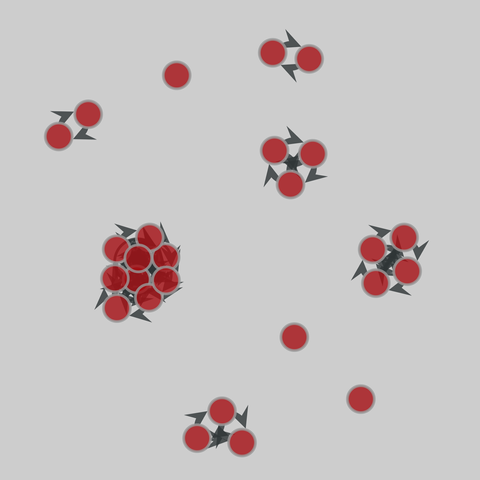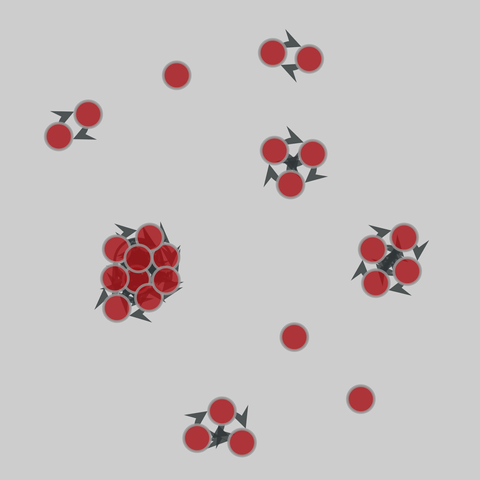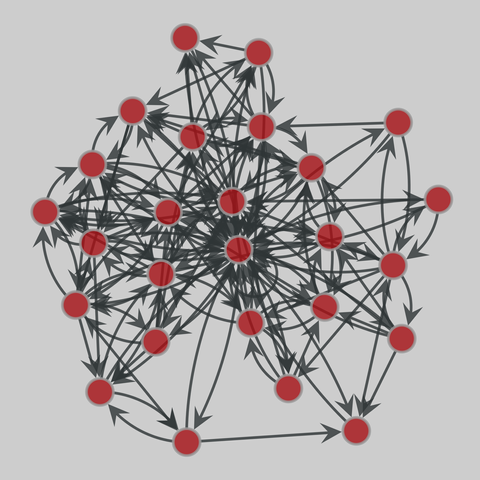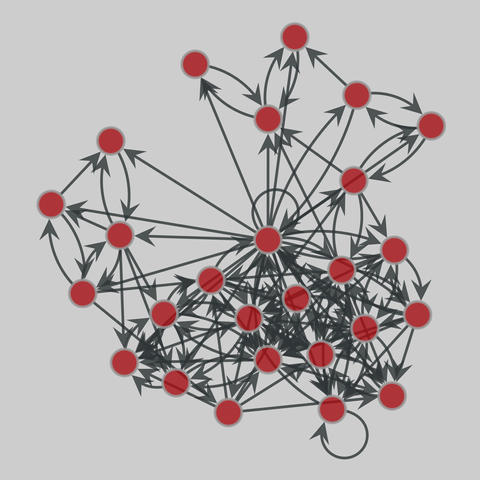2026-01-14 17:49:12
#today I have downloaded, converted and eyeballed ~21 million data points (temperature and humidity from around my home over one year)! Charts appearing on the page soon... I hope to publish this as an open data set and/or refer to it from a new paper...
2026-02-14 17:00:04
dutch_school: Dutch school friendships (2003)
A series of snapshots of the friendships among freshmen at secondary school in The Netherlands, in 2003-2004. Friendship ties were surveyed four times, at three month intervals. The direction of an edge indicates that student i is friends with student j. Missing data is coded as 0 or 10. Metadata includes sex, age, ethnicity, and religion.
This network has 26 nodes and 87 edges.
Tags: Social, Offline, Unweighted, Metadata, Tempo…
2026-02-13 11:44:06
2026-02-08 13:23:52
Good Morning #Canada
Here in beautiful Belle Ewart the temp is -22°C, feeling like -31°C with the wind. But it's a dry cold....
Out west they are struggling with double digit temperatures on the plus side. Edmonton's winter festival organizers are making snow, protecting ice blocks and praying for plunging temps to save their skating rink. The unseasonable weather has impacted events throughput Alberta. The Banff and Lake Louise ice carving festival, Art of Ice, had to take down sculptures because they weren't safe. They were similarly impacted last year. The World’s Longest Hockey Game (WLHG) got underway last Thursday and players are dealing with slushy conditions while golf driving ranges are packed with eager duffers.
I'd gladly make the sacrifice and swap weather conditions with our fellow Canucks out west. It would be a burden that I'd gladly carry.
#CanadaIsAwesome #Weather
https://youtu.be/W59Pi5S-Vic
2026-01-14 20:00:04
dutch_school: Dutch school friendships (2003)
A series of snapshots of the friendships among freshmen at secondary school in The Netherlands, in 2003-2004. Friendship ties were surveyed four times, at three month intervals. The direction of an edge indicates that student i is friends with student j. Missing data is coded as 0 or 10. Metadata includes sex, age, ethnicity, and religion.
This network has 26 nodes and 87 edges.
Tags: Social, Offline, Unweighted, Metadata, Tempo…
2025-12-31 13:44:29
Had Fun
Bought a car/micro-camper
Bought a van to do up as a micro-camper, and did a temporary rush job of that conversion myself while waiting in the list for the pro to do it.
Then the pro gave himself a health criss the week it was booked so I took apart my temp job and only got another temp kit-job in it's place.
Went out in it like four times during that and then broke my wrist and couldn't really use it or improve it.
Then had to take it apart even more to try
and figure out where the ad-blue hole was.
I will do a proper permanent job of the
floor and walls and ceiling and adjustments to the kit-job to make it the nicest it's been so far during the spring next year.
My assumption that the prior conversion
into a van and for wheelchair-access meant the microcamper conversion was half-done already turned out to be false.
If I buy a new one, it'll be one that has never been wheelchair adapted.
But it's going okay. Only scraped it once so far.
Fewer than aimed for or booked, but I broke my wrist and had to cancel the second half of the summer.
Went to a conference about money and computers and fringe decentralized social media and it wasn't as boring as you might expect and felt pretty much like a festival.
Exactly the target number! It's lovely.
Took 3 times longer than I'd hoped and
50% more money than I'd planned for really.
Still improvements to make but they will
be incremental and gradual over the coming year or two now.
It's been interest-only for 20 years so a big old lump sum payment that I never really expected to be able to make. Expected to have to sell and move at the end of the mortgage term.
But surprisingly the stocks ISA got high enough to pay it off after all, so I did that.
Cash-flow ruined by that and the bedroom but should start to feel a bit richer next year.
2025-12-14 00:00:03
dutch_school: Dutch school friendships (2003)
A series of snapshots of the friendships among freshmen at secondary school in The Netherlands, in 2003-2004. Friendship ties were surveyed four times, at three month intervals. The direction of an edge indicates that student i is friends with student j. Missing data is coded as 0 or 10. Metadata includes sex, age, ethnicity, and religion.
This network has 26 nodes and 170 edges.
Tags: Social, Offline, Unweighted, Metadata, Temp…
2025-12-08 21:44:23
Fundraiser by Eric Marienthal : Support Gordon Goodwin's Fight Against Cancer and Stroke
https://www.
2026-02-09 19:42:15
2026-01-10 08:00:03
dutch_school: Dutch school friendships (2003)
A series of snapshots of the friendships among freshmen at secondary school in The Netherlands, in 2003-2004. Friendship ties were surveyed four times, at three month intervals. The direction of an edge indicates that student i is friends with student j. Missing data is coded as 0 or 10. Metadata includes sex, age, ethnicity, and religion.
This network has 26 nodes and 144 edges.
Tags: Social, Offline, Unweighted, Metadata, Temp…






